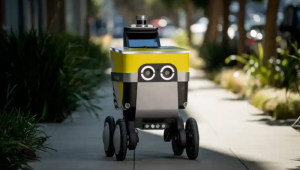Intel to Sell Chips for Tablets Amidst Shaken Up Chip Industry
![]() Intel COO Brian Krzanich announced that the world’s biggest chipmaker, which largely manufactures chips for PCs, is going to get into the tablet chips business as well. They’ve already negotiated with suppliers to meet growing demand. Krzanich is known to speak with authority being one of the men on top of a global chip-manufacturing operation.
Intel COO Brian Krzanich announced that the world’s biggest chipmaker, which largely manufactures chips for PCs, is going to get into the tablet chips business as well. They’ve already negotiated with suppliers to meet growing demand. Krzanich is known to speak with authority being one of the men on top of a global chip-manufacturing operation.
“We will start to see more and more of our capacity and our output go to things that are mobile, like phones and tablets and other devices,” he tells the global newswire.
While Intel remains on top of the chip market with 300 million units manufactured a year, it’s still facing great competition from British chip designer ARM, which powers most of the world’s smartphones and tablets, including the iPad. We’ve seen some serious developments from Intel in recent months to reconcile their absence in the mobile scene, and it’s taken some strong decision-makers to push forward with this goal.
A successor for Intel’s leadership is also a growing concern within the company. The mandatory retirement for Intel’s CEO is at the age of 65, and their current CEO Paul Otellini is already 61 years old. Choosing then next CEO isn’t too far away, and Krzanich, who was elected as COO on January, is the company’s strongest candidate.
If we’re going to follow the pattern of CEO selection in the past, it’s going to lead us to Krzanich. However, there’s another strong candidate, Sean Maloney, the English-born current head of Intel China which has always been the leading contender before suffering stroke two years back. Reports say his recovery is remarkable and he rejoined the company September last year. If his recovery is as good as the rumors have it, then we can expect some action-packed succession clash.
While everything’s going great with Intel, Japanese chip maker Elpida Memory Inc. files for for bankruptcy. This is by far the biggest Japanese bankruptcy filing for a manufacturer. The company got 40 billion yen ($478.2 billion) from the government to help it get through the post-Lehman Brothers crisis, but it continues to face growing competition from well-funded Korean rivals.
Elpida’s bailout also proved to be a good thing for Hynix, the world’s number two memory chipmaker, as its chip supply requests increased. “We’re receiving lots of inquiries from clients concerned about securing a stable supply following Elpida’s bankruptcy filing,” Hynix Chief Executive Kwon Oh-chul told reporters.
A message from John Furrier, co-founder of SiliconANGLE:
Your vote of support is important to us and it helps us keep the content FREE.
One click below supports our mission to provide free, deep, and relevant content.
Join our community on YouTube
Join the community that includes more than 15,000 #CubeAlumni experts, including Amazon.com CEO Andy Jassy, Dell Technologies founder and CEO Michael Dell, Intel CEO Pat Gelsinger, and many more luminaries and experts.
THANK YOU













